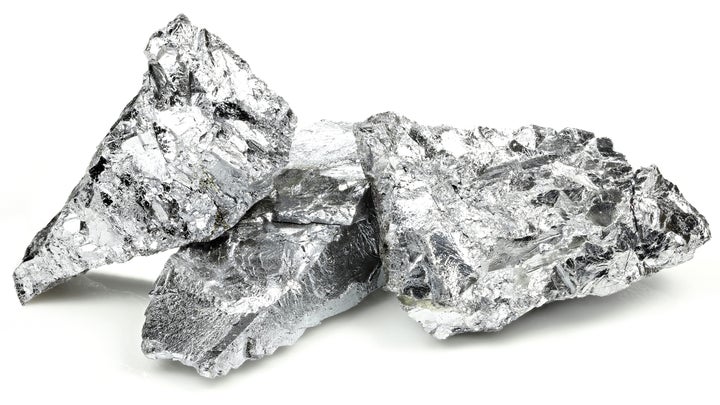Eating the right food is one of the seven steps recommended by the American Heart Association for a healthy heart. Following a heart-healthy diet means replacing foods that are not ideal for heart health with those that provide essential nutrients your heart needs. These 5 essential nutrients are the best place to start for optimal heart health.
1. Fiber
Fiber is a type of carbohydrate that the body cannot directly digest. It nourishes a healthy gut microbiome which supports proper digestion, nutrient absorption, healthy energy, and heart health. Fiber binds with cholesterol in the intestines to promote healthy cholesterol levels and supports metabolic health by slowing the absorption of sugar to help maintain healthy blood glucose levels.
The recommended daily intake (RDI) of fiber is 25 grams for women and 38 grams for men, but Americans currently only get an average of 15 grams of fiber per day. You can increase fiber intake through foods like apples, legumes, oats, brown rice, beans, and vegetables like cauliflower, potatoes, and green beans.
You can also add a broad-spectrum fiber supplement to your diet. One daily scoop of CardioFitMD® provides 20% of the recommended daily serving of fiber, along with other essential nutrients to support heart and whole-body health.

2. Niacin
Niacin is a valuable water-soluble B vitamin used by every part of the body. Niacin helps turn food into energy for digestive and immune support and promotes heart health in several ways. As part of a healthy lifestyle, niacin helps maintain healthy cholesterol levels for arterial, circulatory, and cardiovascular health.
The recommended daily amount of niacin for adult men is 16 milligrams a day, and for adult women who aren't pregnant, 14 milligrams a day. Supplements may contain up to 500 milligrams, which is considered safe. You can also get niacin through foods such as avocados, brown rice, mushrooms, and green peas.
CholestMD® combines niacin with a patented bergamot extract, olive leaf extract, and garlic to provide comprehensive cholesterol and cardiovascular support while aiding healthy lipid levels and blood circulation.
3. Chromium
Chromium is a trace mineral that supports heart health. It is called a trace mineral because you only need a tiny amount. The daily recommended intake for chromium is 35 mcg for men and 25 mcg for women. Because the mineral comes from the soil, you can find it in most vegetables, fruits, and whole grains.
Chromium helps maintain healthy cholesterol levels and supports proper blood flow to ensure oxygen and nutrients are efficiently delivered through the body.

Chromium’s natural effect on the activity of insulin also makes it an important resource in maintaining blood sugar levels within a healthy range.
Chromium specifically works to support the activity of pancreatic cells that promote efficient absorption of glucose. You can get chromium along with six other carefully-selected ingredients in 1MD Nutrition’s GlucoseMD®. As part of a healthy routine, GlucoseMD® provides targeted support for blood glucose, the heart, and metabolic health.
4. Magnesium
Magnesium supports the activity of enzymes that promote healthy heart function and helps maintain a healthy heartbeat and normal blood pressure. The daily recommended intake for magnesium is 420 milligrams for men and 320 milligrams for women. You can find it in green leafy vegetables such as spinach and also in legumes, nuts, seeds, and whole grains.
Adding MagMD® Plus to your daily routine gives you the magnesium your heart needs, essential zinc to support magnesium absorption, and Vitamin D3 to support musculoskeletal health.
5. Potassium
Potassium is an essential mineral used by every tissue in the body and plays several important roles in heart health. It works within the kidneys to support healthy blood ion levels by removing extra sodium. This helps to maintain healthy blood pressure and arterial health to promote healthy circulation.
The recommended daily intake of potassium is 3,400 milligrams for men and 2,600 milligrams for women. Excellent dietary sources of potassium include:
♦ Beans or legumes
♦ Bananas
♦ Nuts
♦ Leafy greens
♦ Broccoli
♦ Melons
♦ Mushrooms
♦ Pumpkins

Final Thoughts
Nutrition is one of the most important factors in the promotion of heart health, along with regular exercise, stress management, and healthy weight management. The best way to meet the nutritional needs of your heart is with a balanced diet that includes these essential nutrients. So don’t worry if life gets in the way sometimes because 1MD Nutrition™ heart health supplements have you covered.
Dr. Heather Shenkman

Dr. Heather Shenkman is a board certified interventional cardiologist. She completed a six year program at Albany Medical College, graduating at the age of 23. She completed her residency at Henry Ford Hospital, cardiology fellowship at the University of Rochester, and interventional cardiology fellowship at the esteemed Tufts Medical Center in Boston.






